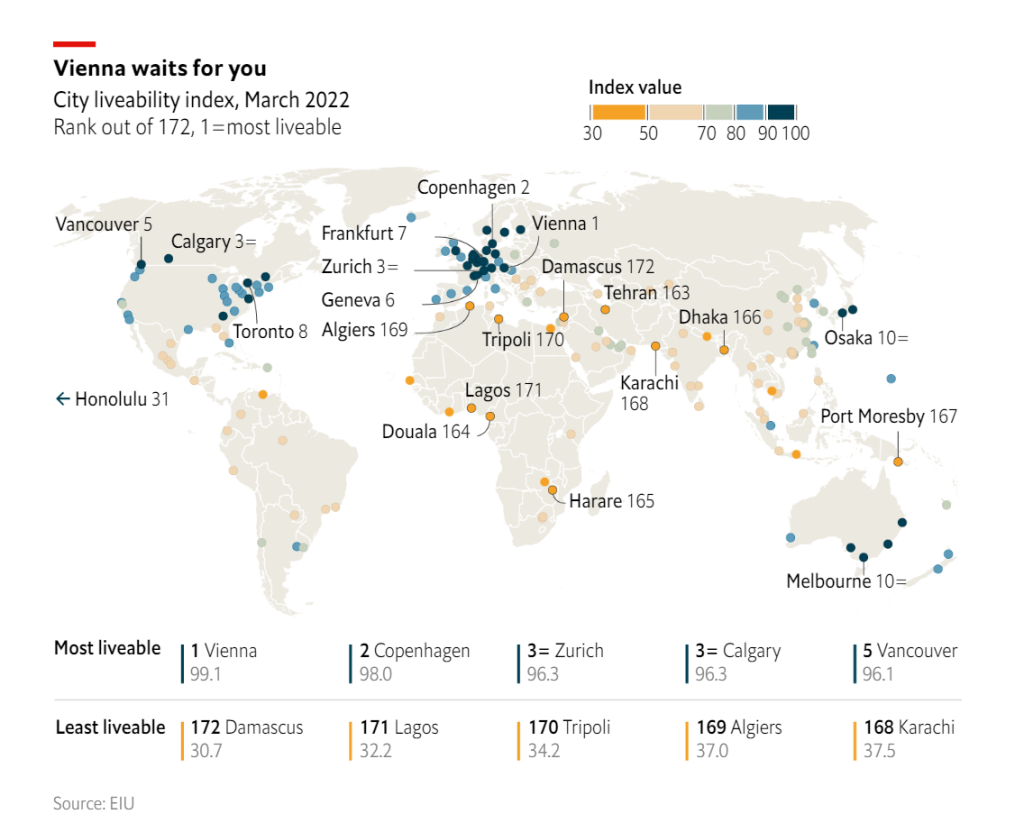I was part of a small but fascinating discussion at The Fat Labrador Cafe yesterday (about which more in tomorrow’s post). The idea was to speak about under-rated/counter-intuitive ideas in economics, and a session that was supposed to last for an hour ended up starting at a little after nine pm, and going on well past eleven pm!
One of the ideas that I thought would be under-rated and counter-intuitive was that cities are magical places. Not only, it turns out, was this not under-rated and counter-intuitive where the audience was concerned, but it was almost quotidian. Huh, but also yay!
I’ve said it before, and I’ll say it again: cities are awesome, fantastic and brilliant, and we need many more of ’em on our planet.
Lebenskunst, The Economist magazine tells us, is the art of living well. Wiktionary has an even better translation, calling it the art of life. But whatever the definition, The Economist’s ranking of the world’s most liveable cities places Vienna at the top.

It is, after all, an index, and that means that you can choose to argue endlessly about which metrics are included and which aren’t, what weights have been given and what should have been the weighting instead, about how liveability isn’t all that measurable and especially comparable, and on and on and on.
The index rates cities along thirty different factors, bucketed into five different categories: stability, health care, culture and environment, education and infrastructure. Note that the article we’re talking about is from June, but that doesn’t really matter for us today. The good news, for the most part, is that “global activity is only around one-sixth lower than before the virus emerged. This is reflected in the global average liveability score, which has bounced back to something approaching normality.”
Of course, parts of the world have done worse compared to the pre-pandemic era. Almost all Chinese cities are worse off, although that is not at all surprising. Re: India, the bad news is that not a single Indian city comes in the top ten, and the good news is that not a single Indian city comes in the bottom ten! A summary of the report is available to read here, once you share your email address with the EIU. No Indian city makes the list of the cities that moved up the most in the rankings, nor does any Indian city make the list of cities that dropped down the most.
The full report costs an insane amount of money, and there’s no way I am paying for it, but you might want to just take a look at a Wikipedia article, as I did, for more information. I wasn’t aware of Numbeo, and obvious concerns about quality of data aside, it is a very interesting project.
Take a look at India’s data, it is fascinating. Pune comes in at number 2, which fills me with pride, and also with worry about what is up with the rest of India’s cities. If we’re at number 2…
